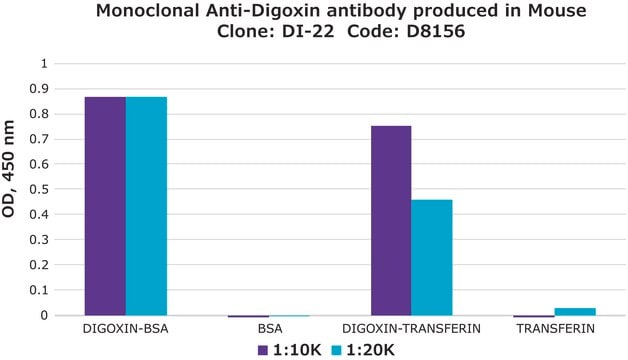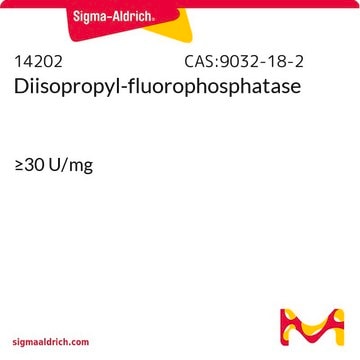B7405
Anti-Digoxin−Biotin antibody, Mouse monoclonal
clone DI-22, purified from hybridoma cell culture
Sinónimos:
Monoclonal Anti-Digoxin, Monoclonal Anti-Digoxin−Biotin antibody produced in mouse
About This Item
Productos recomendados
biological source
mouse
Quality Level
conjugate
biotin conjugate
antibody form
purified from hybridoma cell culture
antibody product type
primary antibodies
clone
DI-22, monoclonal
form
buffered aqueous solution
technique(s)
indirect ELISA: 1:10,000 using digoxin-labeled biomolecule
western blot: 1:500 using using digoxin-labeled biomolecule
isotype
IgG1
shipped in
dry ice
storage temp.
−20°C
target post-translational modification
unmodified
¿Está buscando productos similares? Visita Guía de comparación de productos
General description
Specificity
Immunogen
Application
- in situ hybridization
- immunohistochemistry
- immunolocalization
Biochem/physiol Actions
Physical form
Disclaimer
¿No encuentra el producto adecuado?
Pruebe nuestro Herramienta de selección de productos.
Storage Class
10 - Combustible liquids
wgk_germany
nwg
flash_point_f
Not applicable
flash_point_c
Not applicable
Certificados de análisis (COA)
Busque Certificados de análisis (COA) introduciendo el número de lote del producto. Los números de lote se encuentran en la etiqueta del producto después de las palabras «Lot» o «Batch»
¿Ya tiene este producto?
Encuentre la documentación para los productos que ha comprado recientemente en la Biblioteca de documentos.
Los clientes también vieron
Nuestro equipo de científicos tiene experiencia en todas las áreas de investigación: Ciencias de la vida, Ciencia de los materiales, Síntesis química, Cromatografía, Analítica y muchas otras.
Póngase en contacto con el Servicio técnico








